Movie: Laapataa Ladies
Rating: 4/5
Starring: Sparsh Shrivastav, Nitanshi Goel, Pratibha Ranta, Ravi Kishan, and Chhaya Kadam
Director: Kiran Rao.
Screenplay: Sneha Desai.
Dialogues: Sneha Desai.
Who bothers if just two ladies go missing one fine day on their way to their in-law’s abode as brand new brides, their faces covered in identical red veils with imitation zardozi work? Kiran Rao does and she decides to make a full-length feature film on the subject. The name of this lovely film is Laapataa Ladies.
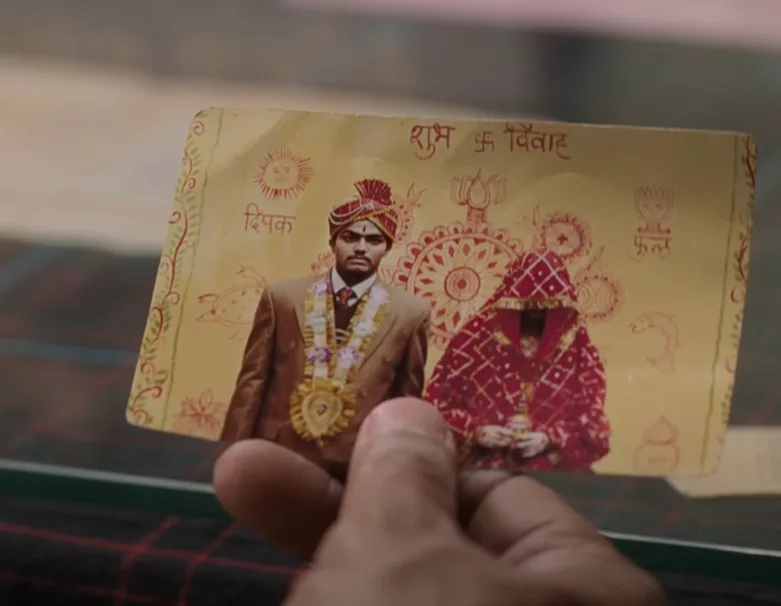
According to a report in the Express News Service, published on July 31, 2023, “Around 13.13 lakh girls and women went missing in the country in the three years between 2019 and 2021, with Madhya Pradesh accounting for the highest at nearly two lakhs, closely followed by West Bengal, the Ministry of Home Affairs has informed the Rajya Sabha.”
Though the government announced relief measures for girls and women in cases of abuse and rape, there is nothing specific for missing girls. This points out at the severe lacunae between reality and its illusion.
So, the missing of two brides or their swapping while stepping into their new homes is no big deal in a patriarchal society like the one we live in. And Laapataa Ladies effortlessly, smoothly and with lots of tongue-in-cheek humour manages to bring this to our notice.
The story of brides getting swapped during the journey to their in-laws is not new. In 1906, in his novel, Noukadubi (The Boat-wreck) Rabindranath Tagore used a quadrangular love story to make a strong social indictment of the time: (a) on the institution of arranged marriages forced by dictatorial fathers on their obedient, duty-bound sons; (b) on the misguided belief in horoscopes to match the pair ideally suited to strike an arranged match; (c) on the patriarchal dictates that deny women the truth even when they deserve it; (d) on how lives of young men and women can be destroyed because during the wedding rituals, they might not have even seen each other’s face; and (e) to establish that one boat wreck can destroy all preconceived, socially conditioned arrangements at one stroke of storm, thunder and rain.
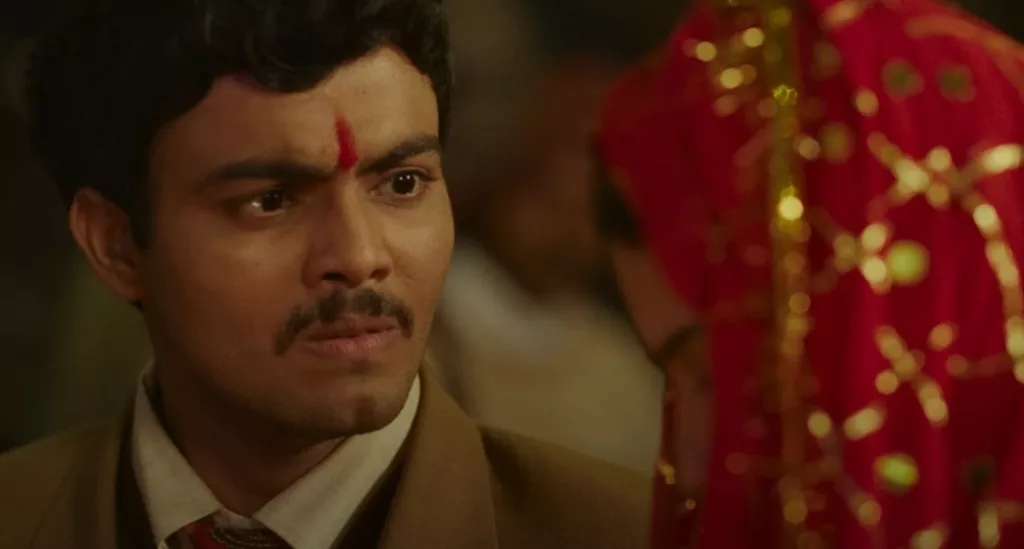
The context of Tagore’s Noukadubi set in late nineteenth and early twentieth century India, was an age of resurgence and reformation, but continued to be soaked in ideas that were decidedly patriarchal with women being governed by customs and religious mores prescribed / proscribed by conservative Brahmin class. This class often followed the dictates of Manusmriti that was taken more or less as a guidebook to a divine code of conduct – especially for women.
Several films were made on this novel later, the first such was Milan (1946) in Hindi directed by Nitin Bose with Dilip Kumar in the lead. Many years later, Gemini Studios made Ghunghat (1960). Rituparno Ghosh also made Noukadubi (2011) in Bengali and Hindi with Subhash Ghai producing it. But it did not get a good reception.
So, the swapping of brides is still on, more than 100 years after it was very much in practice and Laapataa Ladies released in 2024 is living proof of this strange custom of brides having to cover their faces, heads, shoulders and torso included, with identically designed red veils. If the bride’s face is covered, how can you blame the husband who picked up the wrong bride? One husband, Deepak Kumar (Sparsh Shrivastav) began to pine for her terribly because he had grown close to his teenage bride Phool Kumari (Nitanshi Goel) over the three days that he had to stay over at the in-laws after the entire baraat had left because his presence was needed for some pooja and rituals the girl’s grandmother wanted.
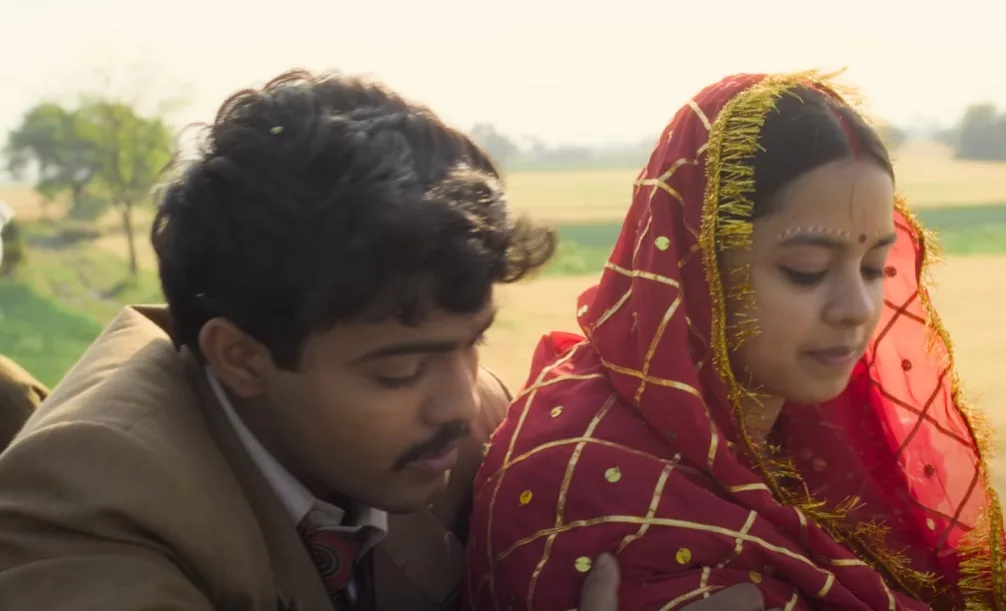
The bride he brings in by mistake, Jaya (Pratibha Ranta) is 18+, not as simple as the other very naïve little girl who too, is pining away for her brand new husband. But Jaya seems to hide some secret under her sleeve. She visits the temple every now and then, has a hidden cell-phone which the new ‘family’ knows nothing about, secretly begins to sell off her gold and send the money somewhere. It transpires that in the village, the temple is the only place where the satellite signals are good.
Jaya’s husband does not seem to be worried about her absence. It later transpired that the husband was married earlier and his wife was burnt to death under very suspicious circumstances. We all begin to think, and are almost convinced that Jaya probably has a hidden boyfriend somewhere and is trying to reach out to him. But the twist in the tale spells out a completely different story. Her real name is not “Jaya” either.
All the “twists” in the story happen in the “good” offices of the corrupt cop Shyam Manohar (Ravi Kishan), who himself throws up a magical and funny twist in the tale in the hilarious climax.
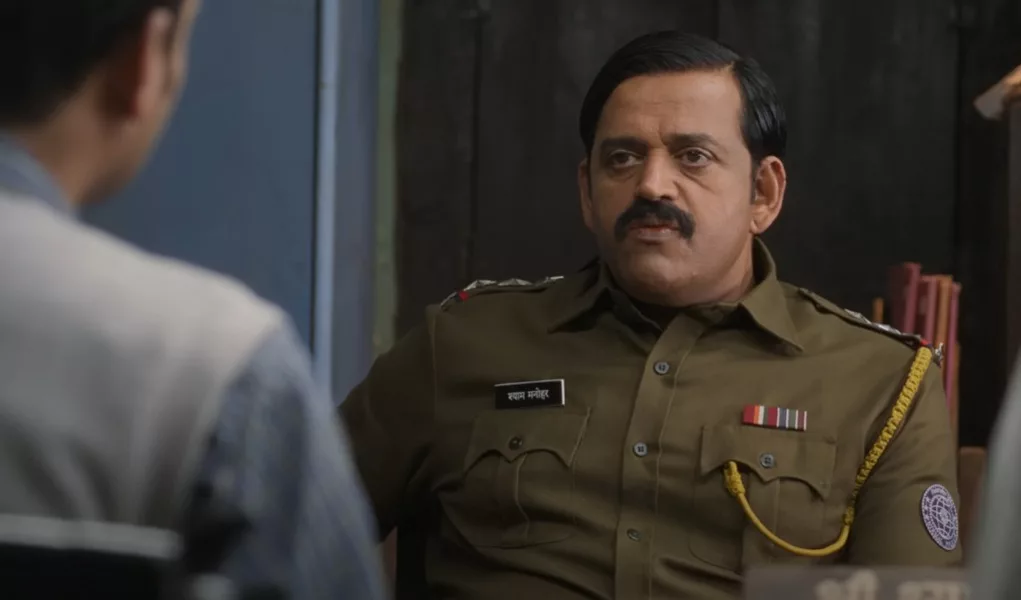
The ‘alternative’ life of the pining Phool Kumari offers a very interesting sub-text in the entire film. Phool, who claims she is an excellent cook and is good at housework, begs for shelter from a middle-aged lady Manju (Chhaya Kadam) who runs a tea stall near the station. Phool Kumari’s excellent dishing out of a milk sweet shoots up Manju’s sales, and though the middle-aged Manju is a fiery feminist forced to go through it alone because she had as abusing a husband as she had a son and thinks the world exists only to “fraad” the women. At one point she says, “A ‘respectable’ girl is the biggest fraud in society as it conditions her to not question the status quo.” But she warms up to Phool Kumari and even hands her the first wages for her work in the tea stall. Phool Kumari is thrilled that after all, she can earn through her own work.
The other pretty bride, Jaya, not bothered at all about her husband not looking out for her, slowly warms up to her ‘new family’. There is a touching scene where she tells the elder bahu of the family that she has been lucky to have got married despite being mute. The bahu at once retorts, “But I am not mute. I do not speak because I have no one to speak to. My husband lives away and I miss him. I do not even have a picture which was used in his Aadhaar Card. So, I remember him through a drawing I made of him” and shows her a beautiful pencil sketch of her husband, pulling it out from under the bed clothes. “So you draw so well?” asks Jaya and the bahu simply smiles.
The film is amply dotted with these tiny but very significant messages through dialogue among and between the women. Deepak’s mother tells Jaya that she loved food in her father’s house cooked with onions and garlic and lots of hot spices. Today, having married into a vegetarian family, she has forgotten all that. So Jaya asks her, “Why don’t you cook with these spices for yourself?” And the older lady says, “I have forgotten entirely what I loved to eat.” And these women are no feminists with flags in their hands or ready to go out on a candle-light march for the “rights of women”.
If Phool Kumar is naïve, too little and too innocent not to question her status, Jaya is just her opposite. Though the film is placed in a remote village somewhere in a fictitious state, it offers a beautiful blend of a lovely story of love, a story of how the village police inspector operates where no one questions the corruption because they do not even know that taking bribes is a crime, where an 18-year-old beauty, married against her wishes when she did not want to marry at all, is completely aware of her rights not to live out a marriage forced on her, her right to an education she is entitled to and capable of, and her right not to marry unless she wishes to. She is not even a graduate but is determined to fulfil her ambition of becoming a qualified organic agriculturist.
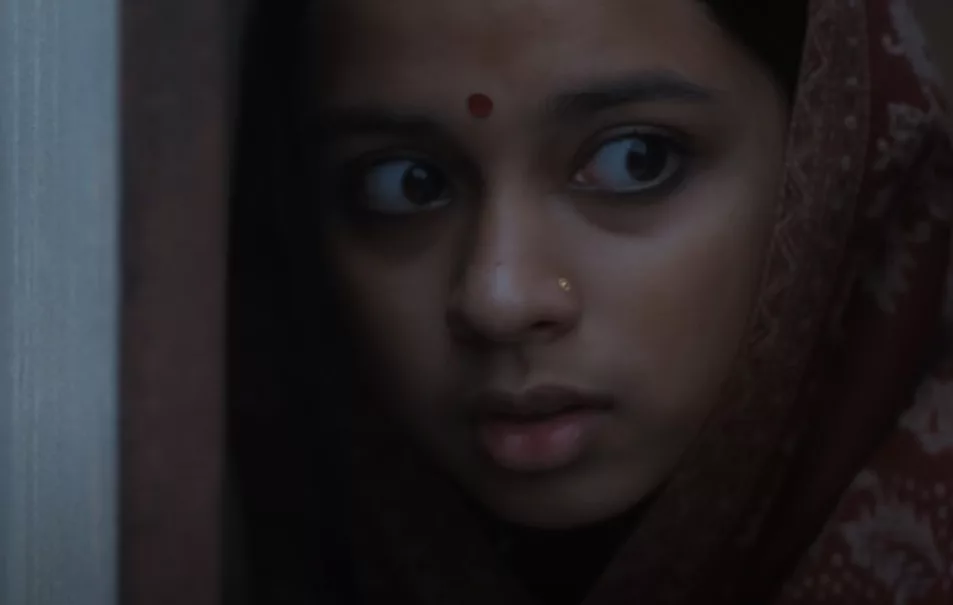
Except for Ravi Kishan and Chhaya Kadam who are the only two known faces, the others are brand new, prepared and honed with great care by Kiran Rao and her team. Watching the film, it would be difficult to separate the veterans from the new faces as all of them are really good. Kiran’s ability to adapt Biplab Goswami and Sneha Desai’s story and script and weave it, like a Kashmiri carpet, into a beautiful film.
The editing is slick and brisk especially inside the running train compartment with three veiled brides jostling for space and trying to trace the husband they are married to. The cinematography makes ample use of the lovely colours of the rural landscape and also, the costumes of the women and their jewellery, making for a beautifully orchestrated portrait.
The dehati music and songs enliven the colours of nature the visuals are resplendent which proves that one does not need to have one’s characters hanging from helicopters to prove their case. Laapata Ladies, perhaps without intending to, throws a challenge to films like Animal which insults even the animal community at large and ends up with the Shakespearean title “Much Ado About Nothing”. Thank you Kiran Rao for proving that in this film, “nothing” in fact, can be “everything”.


